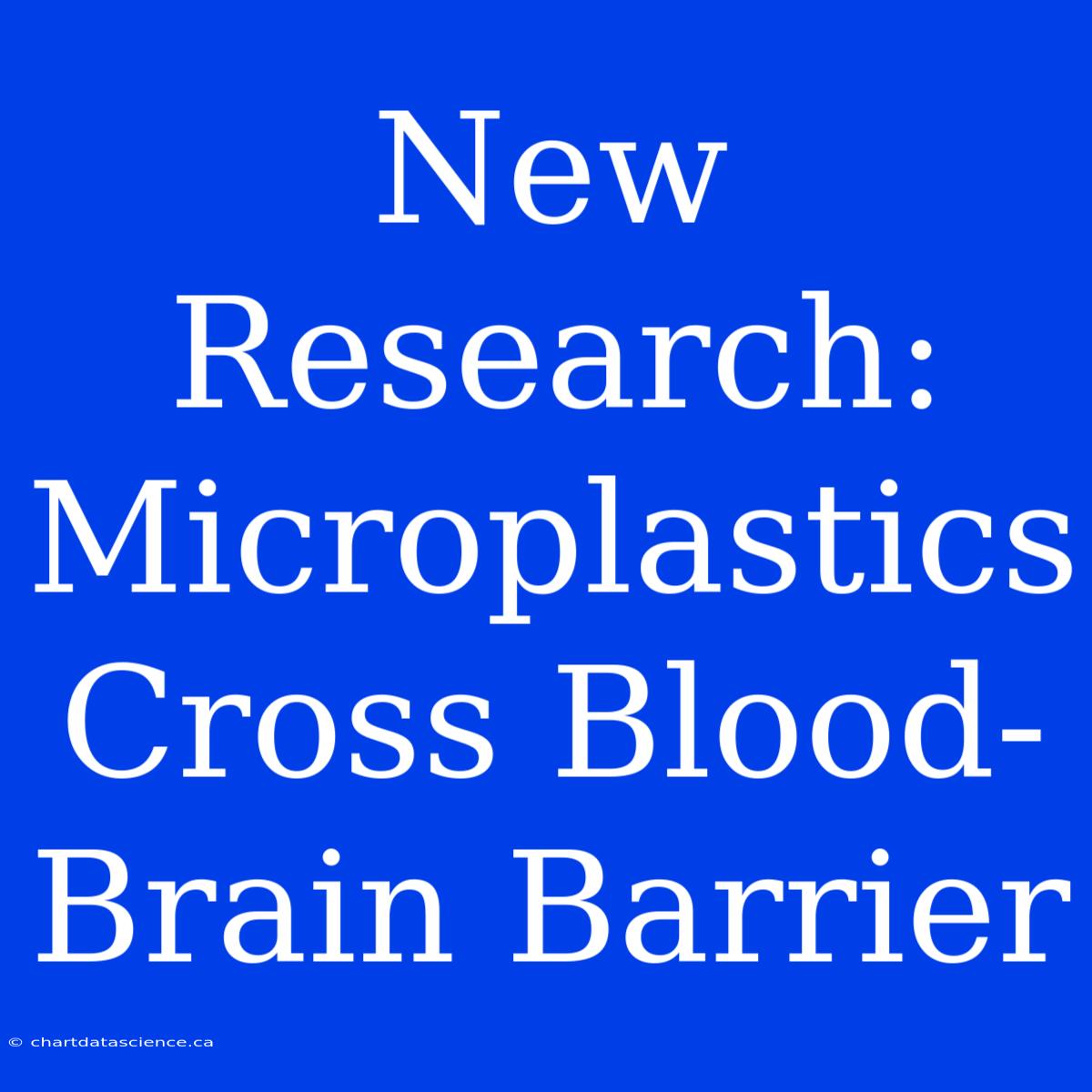New Research: Microplastics Cross the Blood-Brain Barrier, Raising Concerns for Brain Health
The tiny, ubiquitous particles known as microplastics are everywhere – from our food to our water, and even our air. And now, a new study has revealed the chilling reality that these plastic particles can even cross the blood-brain barrier, a critical barrier that protects our brains from harmful substances.
This discovery, published in the journal Environmental Science & Technology, has sent shockwaves through the scientific community, as it could have profound implications for our brain health. While the exact effects of microplastics on the brain are still being investigated, the mere fact that they can cross the blood-brain barrier is a cause for serious concern.
The Blood-Brain Barrier: Our Brain's Gatekeeper
The blood-brain barrier acts as a protective shield, preventing harmful substances from entering the brain. This barrier is crucial for maintaining the delicate balance of our brain's environment and keeping it safe from infection and damage.
However, the study, led by researchers at the University of Otago in New Zealand, found that microplastics, in particular, polystyrene microplastics, can cross this critical barrier. This was observed in lab-grown human brain cells as well as in experiments with zebrafish.
What Does This Mean for Brain Health?
The implications of this groundbreaking research are far-reaching and concerning. While the exact effects of microplastics on the brain are still being investigated, potential risks include:
- Neurotoxicity: Microplastics could potentially damage brain cells, leading to neurodegenerative diseases like Alzheimer's and Parkinson's.
- Inflammation: Microplastics could trigger inflammation in the brain, which is linked to cognitive decline and other health issues.
- Disruption of Brain Development: In the developing brain, microplastic exposure could disrupt the delicate process of neural development, potentially leading to developmental delays or cognitive impairment.
Urgent Need for Further Research
This study highlights the urgent need for further research to understand the full impact of microplastics on human brain health. More research is needed to determine:
- The long-term effects of microplastic exposure on the brain.
- The specific types of microplastics that pose the greatest threat.
- The most effective ways to prevent microplastic exposure and protect our brains.
This new research serves as a stark reminder of the widespread and potentially harmful effects of plastic pollution. It underscores the importance of reducing plastic consumption, proper waste management, and further scientific investigation into the impact of microplastics on human health.

